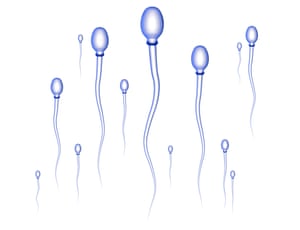Is Gut Instinct Revelatory Science?
"My gut instinct is that something that matters so much at an emotional level -- the intense pleasure of orgasm -- would seem to have reproductive consequences."
David A Puts, anthropologist, Pennsylvania State University

Two evolutionary biologists have conceived a theory, one they published in The Journal of Experimental Zoology, concluding that the evolutionary roots of the female organism originated in general in all mammals over 150 million years ago. It was nature's solution to conception by releasing eggs from a female, meant to be fertilized after the occurrence of sex.
Men are encouraged to engage in sexual activity through the pleasure inherent in ejaculation to enable the passing of a male's genes to a succeeding generation. Nature designed the process to encourage males in the sex act, releasing more sperm, a process clearly advantageous to evolution, succession and survival of the species.
For a woman, on the other hand, an orgasm is not a requirement to ensure women become pregnant. In any event, the puzzle is the unequal reality of the situation; men readily and easily experience orgasm, while for women the regularity of experiencing orgasm during sex is far less reliable.
In a survey undertaken in 2010, 35.6 percent of women admitted not having experienced an orgasm on their most recent sex experience.
Anatomy explains the difference for men and for women. The male organ is directly involved in the process when ejaculation causes orgasm, whereas for women, the clitoris, the seat of orgastm pleasure is placed quite separately from the vagina. Although many scientists feel the female orgasm serves a clear biological function, that function is as yet a mystery.
Yale University researchers, Mihaela Pavlicev and Gunter P. Wagner studied obscure old journals in an information-gathering process for their study. They studied data on species from aardvarks to koalas, finding that many female mammals release oxytocin and prolactin during sex; those hormones the very ones released by women during orgasms.
In many of the animal species studied females underwent a different reproduction protocol than human females who release an egg monthly, whereas other female mammals; rabbits and camels, for example; release an egg only after mating with a male of their species. In only a few types of mammals did ovulatory cycles evolve, including that of humans.
Primordially, before the evolution of ovulatory cycles, human ancestors were designed to ovulate only when triggered by sex with a male. The early mammals developing a clitoris inside the vagina could have included humans. But the design evolved in nature when ovulatory cycles took the place of ovulation triggered by sex, resulting in a physical 'migration' of the clitoris outside the vagina.
The scientists' theory is that when early mammals mated, the function of the clitoris would be to send signals to the brain informing hormones to activate the release of an egg which, once fertilized, was guided by the hormones to implantation in the uterus. The theory is that this process was an aid to females capitalizing on each mating, where males are seldom encountered.
It was only when mammals became social, spending more time together in groups and females were able to copulate more regularly with males that orgasm as a mechanism to produce ovulation was no longer as useful as originally designed in nature. Which resulted in the evolution of a new protocol, the release of eggs on a regular cycle of ovulation.
Since the original blueprint of the orgasm became negligible, the clitoris' original position was negated and it drifted to another position. Despite their theoretical findings, Drs. Pavlicec and Wagner agree the debate of the orgasm in women is yet open to question: "All directions are open".
Labels: Bioscience, Human Relations, Research


0 Comments:
Post a Comment
<< Home